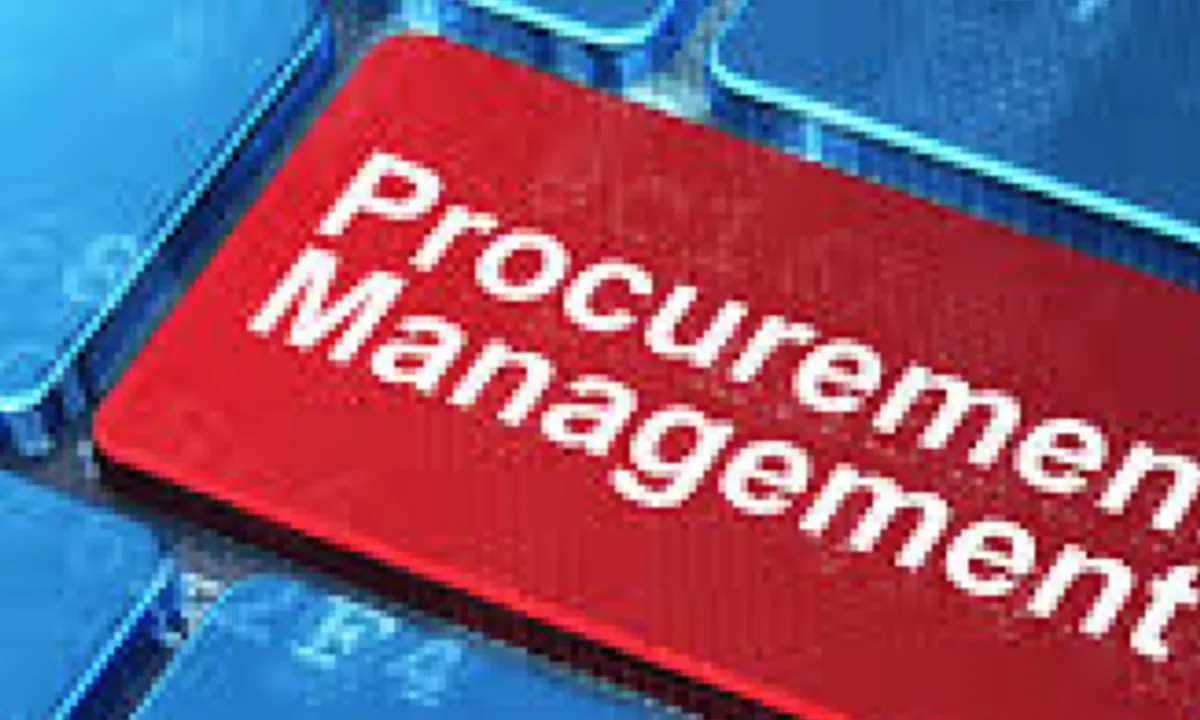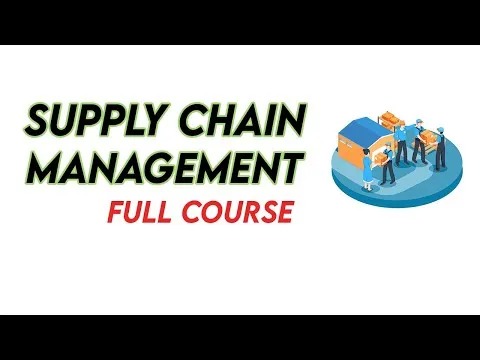
Procurement Basics 
This course provides an introduction to the basics of procurement, covering topics such as the importance of the procurement organization, cost versus value, processes such as RFQ, RFP, and RFX, direct and indirect procurement, and stakeholder management. It is designed to give participants a comprehensive understanding of the fundamentals of procurement. ▼
ADVERTISEMENT
Course Feature
![]() Cost:
Cost:
Free
![]() Provider:
Provider:
Coursera
![]() Certificate:
Certificate:
Paid Certification
![]() Language:
Language:
English
![]() Start Date:
Start Date:
3rd Jul, 2023
Course Overview
❗The content presented here is sourced directly from Coursera platform. For comprehensive course details, including enrollment information, simply click on the 'Go to class' link on our website.
Updated in [March 06th, 2023]
This course, Procurement Basics, provides an overview of the fundamentals of procurement. It covers topics such as the importance of the procurement organization and its role in the organization, cost vs. value, processes such as the use of RFQ, RFP, and RFX, differences between direct and indirect procurement, and stakeholder management. The course includes videos, readings, and a required case that will be assessed by a peer review. Additionally, a Practice Assessment (multiple choice) is available to the student to help prepare for the Final Assessment (40 Multiple Choice) at the end of the specialization in Course 7, which is required to obtain the certification.
[Applications]
Upon completion of this course, participants should be able to apply the knowledge gained to their own procurement organization. They should be able to identify the importance of the procurement organization and its role in the organization, understand the differences between direct and indirect procurement, and be able to manage stakeholders. Additionally, participants should be able to use the processes such as RFQ, RFP, and RFX, and understand the cost vs. value of procurement.
[Career Paths]
1. Procurement Manager: A Procurement Manager is responsible for overseeing the procurement process, from researching and selecting suppliers to negotiating contracts and managing relationships with vendors. They must have a strong understanding of the market and be able to identify cost-saving opportunities. As the role of procurement continues to evolve, Procurement Managers must stay up to date with the latest trends and technologies to ensure their organization is getting the best value for their money.
2. Supply Chain Manager: A Supply Chain Manager is responsible for overseeing the entire supply chain process, from sourcing raw materials to delivering finished products to customers. They must have a strong understanding of the market and be able to identify cost-saving opportunities. As the role of supply chain continues to evolve, Supply Chain Managers must stay up to date with the latest trends and technologies to ensure their organization is getting the best value for their money.
3. Procurement Analyst: A Procurement Analyst is responsible for analyzing data and making recommendations to the Procurement Manager. They must have a strong understanding of the market and be able to identify cost-saving opportunities. As the role of procurement continues to evolve, Procurement Analysts must stay up to date with the latest trends and technologies to ensure their organization is getting the best value for their money.
4. Supply Chain Analyst: A Supply Chain Analyst is responsible for analyzing data and making recommendations to the Supply Chain Manager. They must have a strong understanding of the market and be able to identify cost-saving opportunities. As the role of supply chain continues to evolve, Supply Chain Analysts must stay up to date with the latest trends and technologies to ensure their organization is getting the best value for their money.
[Education Paths]
1. Bachelor of Business Administration (BBA): This degree focuses on the fundamentals of business, such as accounting, finance, marketing, and management. It is a great option for those looking to gain a broad understanding of the business world and develop the skills needed to succeed in a variety of roles. The BBA is also a great option for those looking to pursue a career in procurement, as it provides a comprehensive overview of the business world and the skills needed to succeed in the field. Additionally, the BBA is becoming increasingly popular due to its flexibility and the ability to specialize in a particular area of business.
2. Master of Science in Supply Chain Management (MSSCM): This degree focuses on the management of the supply chain, from procurement to delivery. It is a great option for those looking to specialize in the field of procurement and supply chain management. The MSSCM provides a comprehensive overview of the supply chain, from the procurement process to the delivery of goods and services. Additionally, the degree provides students with the skills needed to manage the supply chain, from forecasting and budgeting to inventory management and logistics.
3. Master of Business Administration (MBA): This degree focuses on the fundamentals of business, such as accounting, finance, marketing, and management. It is a great option for those looking to gain a broad understanding of the business world and develop the skills needed to succeed in a variety of roles. The MBA is also a great option for those looking to pursue a career in procurement, as it provides a comprehensive overview of the business world and the skills needed to succeed in the field. Additionally, the MBA is becoming increasingly popular due to its flexibility and the ability to specialize in a particular area of business.
4. Master of Science in Procurement and Supply Chain Management (MSPSCM): This degree focuses on the management of the procurement and supply chain processes. It is a great option for those looking to specialize in the field of procurement and supply chain management. The MSPSCM provides a comprehensive overview of the procurement and supply chain processes, from the procurement process to the delivery of goods and services. Additionally, the degree provides students with the skills needed to manage the procurement and supply chain processes, from forecasting and budgeting to inventory management and logistics.
Pros & Cons

Comprehensive explanations with study cases.

Clear and seamless contract negotiation and supplier relationships.

Good overview of how Procurement works.

Strategies to maintain healthy business relationships with vendors.

Self reading rather than lecture.

Low quality pictures of tables and graphs.
Course Provider

Provider Coursera's Stats at AZClass
Discussion and Reviews
0.0 (Based on 0 reviews)
Explore Similar Online Courses

Applied Business Negotiations

Guitar Performance Techniques

Python for Informatics: Exploring Information

Social Network Analysis

Introduction to Systematic Review and Meta-Analysis

The Analytics Edge

DCO042 - Python For Informatics

Causal Diagrams: Draw Your Assumptions Before Your Conclusions

Whole genome sequencing of bacterial genomes - tools and applications

MIT Free Supply Chain Management Courses

What Are Good Supply Chain Certifications?

Supply Chain Management (Full Course) SCM Lecture
 Related Categories
Related Categories
 Popular Providers
Popular Providers
Quiz
 Submitted Sucessfully
Submitted Sucessfully
1. What is the purpose of the procurement organization?
2. What is the difference between direct and indirect procurement?
3. What is the Final Assessment at the end of the specialization?
4. The course will be supported by _________, readings and a required case that will be assessed by a peer review.
Correct Answer: videos


Start your review of Procurement Basics